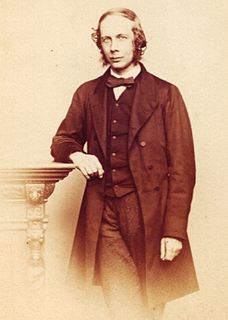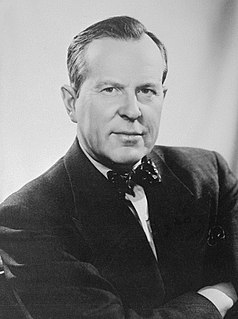A Quote by Henry James Sumner Maine
Law is stable the societies we are speaking of are progressive. The greater or less happiness of a people depends on the degree of promptitude with which the gulf is narrowed.
Related Quotes
I am convinced that those societies (such as the Native American peoples) which live without government enjoy in their general mass an infinitely greater degree of happiness than those who live under the European governments. Among the former, public opinion is in the place of law, & restrains morals as powerfully as laws ever did anywhere. Among the latter, under pretence of governing they have divided their nations into two classes, wolves & sheep. I do not exaggerate.
Material progress and a higher standard of living bring us greater comfort and health, but do not lead to a transformation of the mind, which is the only thing capable of providing lasting peace. Profound happiness, unlike fleeting pleasures, is spiritual in nature. It depends on the happiness of others and it is based on love and affection.
The optimum portfolio depends on the various expectations of choices available and the degree of variance in performance which is tolerable. The greater the number of selections, the less will be the average year-to-year variation in actual versus expected results. Also, the lower will be the expected results, assuming different choices have different expectations of performance.
The less you eat, drink and read books; the less you go to the theatre, the dance hall, the public house; the less you think, love, theorize, sing, paint, fence, etc., the more you save-the greater becomes your treasure which neither moths nor dust will devour-your capital. The less you are, the more you have; the less you express your own life, the greater is your alienated life-the greater is the store of your estranged being.
The happiness of being envied is glamour.
Being envied is a solitary form of reassurance. It depends precisely upon not sharing your experience with those who envy you. You are observed with interest but you do not observe with interest - if you do, you will become less enviable. In this respect the envied are like bureaucrats; the more impersonal they are, the greater the illusion (for themselves and for others) of their power. The power of the glamorous resides in their supposed happiness: the power of the bureaucrat in his supposed authority.
I think it is important that religious leaders of all kinds consciously attempt to distinguish between issues of natural law on which there is consensus among Catholic, Protestant, and Jew and those issues on which there must be a greater degree of tolerance of other peoples' opinions and of the diversity that is characteristic of American society.







































